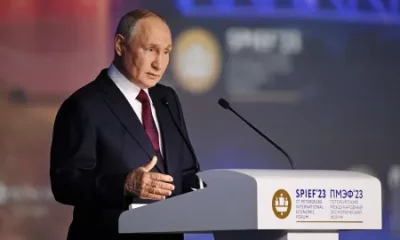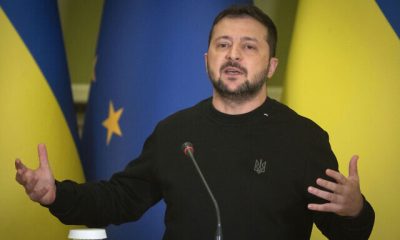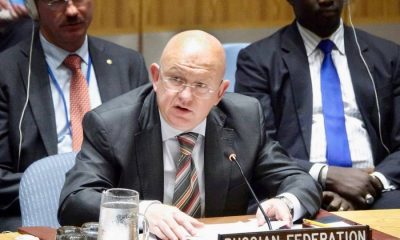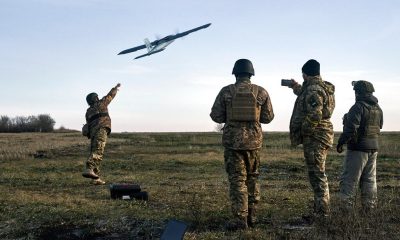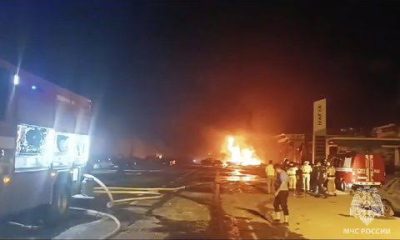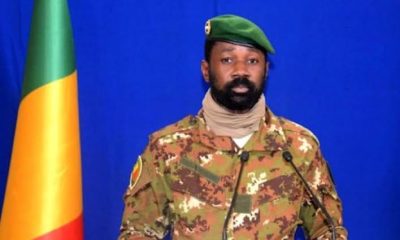Foreign
Russia University Introduces Yoruba Language & Others

Russia university introduces Yoruba language,others to curb international isolation
Article Summary
Russia will start teaching three major African languages at Lomonosov Moscow State University
The languages will help forge closer ties with the continent.
These are Swahili, Amharic and Yoruba
Starting this year, the Russian government will begin teaching three major African languages in a few Moscow schools as part of efforts to strengthen links with the continent.
This is coming in light of the growing international isolation Russia is experiencing as a result of the invasion of Ukraine.
According to Alexei Maslow, director of the Institute of Asian and African Studies at Lomonosov Moscow State University, the languages will be taught in four yet-to-be-disclosed schools starting in September 2023. The languages include Swahili, which is widely spoken in Eastern Africa, Amharic, and Yoruba, which are spoken in Nigeria and neighbouring countries.
The Russian news source Sputnik reported last week that the African languages will be taught as a part of a special program of the IAAS-MSU and is intended to assist create deeper links with the continent.
The announcement was made at a Sputnik international roundtable on Russia-Africa relations that was attended by academics from universities in the two countries and focused on “prospects for economic cooperation. If implemented, the decision will make Russia the first nation in Europe to offer African language instruction in public schools.
What they said
This news brought excitement in some circles in both Russia and Africa, with the Russian embassy in Uganda happily tweeting the news.
“Starting this September, students from four schools in Moscow will begin learning African languages – Swahili, Amharic and Yoruba”, it announced.
“An abrupt turn to Africa requires a completely different type of specialists who could work directly with the economy and with modern political and economic elites, and most importantly, would realise that Africa is not just one big continent, but, a patchwork of diverse national, ethnic, religious and linguistic traditions,” Maslov said at the event.
“An abrupt turn to Africa requires a completely different type of specialist”
The selection of the languages
One of the most widely used languages in Africa, Swahili, also known as Kiswahili, is spoken largely in the East African nations of Kenya, Tanzania, Uganda, Burundi, Rwanda, and the Democratic Republic of the Congo. The language is spoken by more than 200 million people. It is the official tongue of Kenya and Tanzania, and the African Union has adopted it as their common language.
Yoruba, on the other hand, is primarily spoken in Nigeria, Benin, and Togo in West Africa, where over 50 million people do. Over 50 million people speak Amharic in the nations of Ethiopia and Eritrea.
According to the Study in Russia organization Racus, over 100,000 African students have expressed interest in studying there, and about 30,000 of them are currently enrolled in Russian universities. In recent years, the nation has increased its recruitment efforts, utilizing affordability and quality as the selling point. Russia gets $110m yearly as tuition from 22,000 African students.
The cooperation between Russia and Africa in the field of education is even said to be “at a traditionally high level,” according to Russian President Vladimir Putin, who also noted that 5,000 of the 27,000 African students studying there are being supported by his government through scholarships.
Foreign
3 teens arrested in Germany for allegedly plotting terror attack
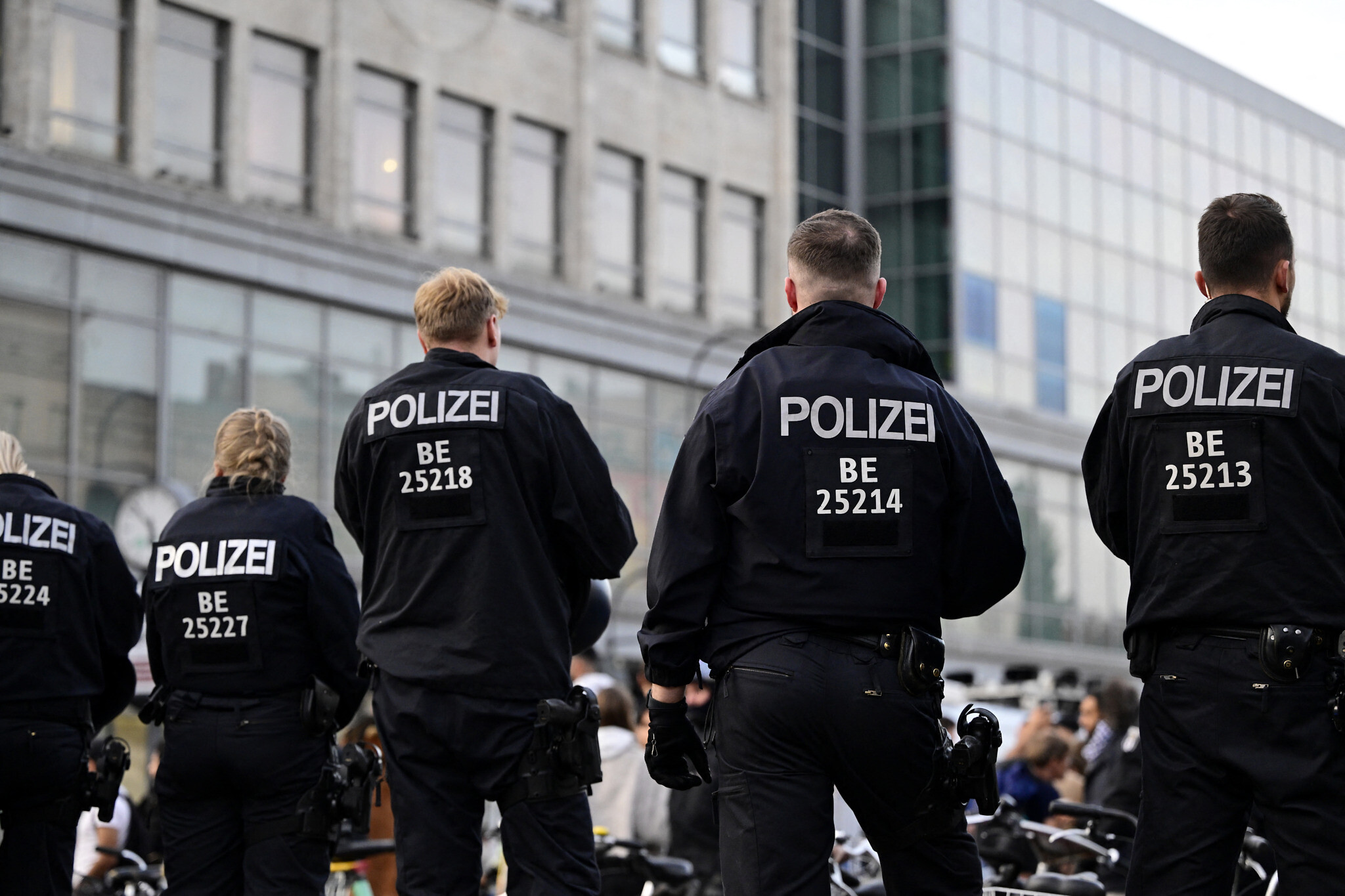
German authorities have arrested three teenagers aged 15 and 16 on suspicion of plotting a deadly Islamist terrorist attack in the western German state of North Rhine-Westphalia, prosecutors said on Friday.
The state’s Central Office for the Prosecution of Terrorism (ZenTer NRW) sought an arrest warrant for the teenagers over the Easter holiday.
They were suspected of plotting a terrorist attack in accordance with the aims and ideology of (extremist militia organisation) Islamic State.
The detained suspects are a 15-year-old girl from Dusseldorf, a 16-year-old girl from the Märkischer Kreis district and a 15-year-old boy from the Soest district, located about 100 kilometres to the east of Dusseldorf.
A fourth suspect has reportedly been identified in the south-western German state of Baden-Württemberg, and the local court there has issued an arrest warrant.
According to the investigators, the teenagers are accused of having agreed to commit murder and manslaughter.
This is in conjunction with the preparation of a serious act of violence endangering the state.
The presumption of innocence applied in all stages of the proceedings.
Security sources told newsmen that the young people had formed a chat group, but had not drawn up a concrete attack plan for a particular time and place.
However, sources said the cities of Dortmund, Dusseldorf and Cologne were discussed as targets, and attacks with knives and Molotov cocktails on people in churches or police officers in police stations had been considered.
The sources said authorities had also conducted searches as part of the investigation.
A machete and a dagger were seized in Dusseldorf, but no evidence of the construction of incendiary devices was discovered.
Sources said the father of the Dusseldorf suspect had already attracted attention from authorities in the past because he had allegedly collected donations for the Islamic State.
The investigators declined to reveal how the suspected terrorists were tracked down, but said that foreign intelligence agencies “did not play a role.”
Foreign
Putin Registers As Candidate For Russia’s Next Presidential Election
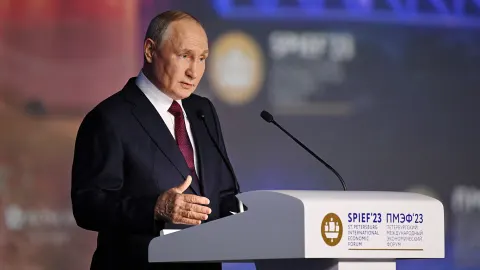
Russia on Monday officially recognised Vladimir Putin as a candidate for the presidential elections in March, a vote that he is all but certain to win.
The 71-year-old has led Russia since the turn of the century, winning four presidential ballots and briefly serving as prime minister in a system where opposition has become virtually non-existent.
The Central Election Commission said it had registered Putin, who nominated himself, as well as right-wing firebrand and Putin-loyalist Leonid Slutsky as candidates for the vote.
The election will be held over a three-day period from March 15 to 17, a move that Kremlin critics have argued makes guaranteeing transparency more difficult.
Following a controversial constitutional reform in 2020, Putin could stay in power until at least 2036.
Rights groups say that previous elections have been marred by irregularities and that independent observers are likely to be barred from monitoring the vote.
While Putin is not expected to face any real competition, liberal challenger Boris Nadezhdin has passed the threshold of signatures to be registered as a candidate.
However, it is still unclear if he will be allowed to run, and the Kremlin has said it does not consider him to be a serious rival.
-

 Headline10 hours ago
Headline10 hours agoSuspend cybersecurity levy– Reps to CBN
-

 Headline10 hours ago
Headline10 hours agoTinubu resumes work after foreign trip
-

 Business10 hours ago
Business10 hours agoNigeria needs over $2bn to revive Ajaokuta Steel Plant, says Minister
-

 News10 hours ago
News10 hours agoShan George’s money returned to Zenith Bank account
-
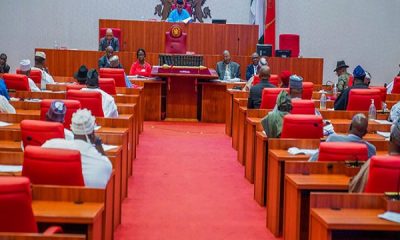
 News9 hours ago
News9 hours agoSenate approves death penalty for drug traffickers

